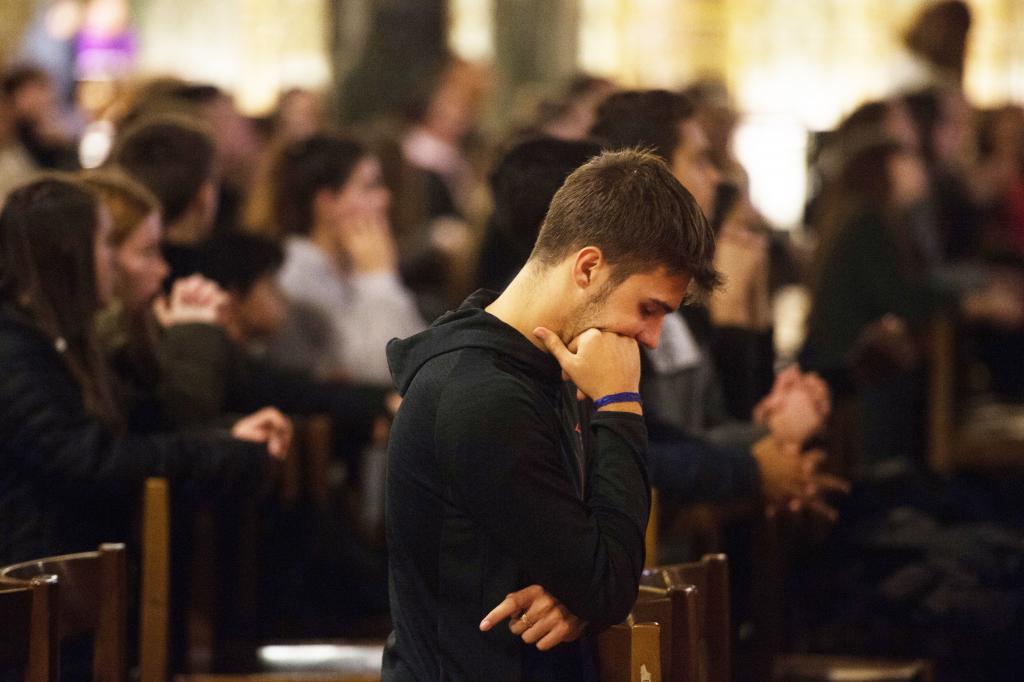‘For while gentle silence enveloped all things, and night in its swift course was now half-gone, your all-powerful word leaped from heaven, from the royal throne...’ (ESV, Wisdom 18: 14-16).
By Bishop John Sherrington
It is difficult to wait and many people become more impatient with daily life. While trains run with remarkable regularity on the Victoria line, one a minute, frustration quickly builds up when there is a longer delay. Coffee can be drunk ‘on the go’ and food consumed in the street and on the train. Time to pause disappears. Amazon Prime promises to deliver the next day, and even sometimes on the same day. Today the promise of the credit card that was advertised with the slogan ‘Take the waiting out of wanting’ can be fulfilled with the click of a mouse. All these dynamics make it more difficult to wait. The season of waiting, Advent, can be lost if Christmas is pre-empted and celebrated early. We are in danger of losing the wisdom of the Church that we find in the liturgical calendar.
At the same time important matters cannot be rushed. A baby needs nine months to grow in the womb. A wound needs time to heal. Back pain needs weeks for the soreness to disappear. The dawn needs time to enlighten the sky and bring forth again colour into the world. The call to grow in holiness needs patience and fidelity to the little acts of love that make daily life more bearable and bring a smile to the face and joy into others’ hearts. In his letter on the call to holiness, Pope Francis invites us to pause. ‘I like to contemplate the holiness present in the patience of God’s people: in those parents who raise their children with immense love, in those men and women who work hard to support their families, in the sick, in elderly religious who never lose their smile. In their daily perseverance I see the holiness of the Church militant. Very often it is a holiness found in our next-door neighbours, those who, living in our midst, reflect God’s presence.’ (Gaudete et exsultate 7).
The Pope’s reflection reminds me of a celebration of the sacrament of confirmation earlier this year for a teenager with profound disabilities. Her parents showed their love and their care of their daughter in the way that she needed attention and calming. The family together revealed saintly care and tenderness in difficult circumstances. I am also reminded of the love and care shown by an elderly husband towards his beloved but awkward wife, who now lives daily with Alzheimer’s which makes her angry and difficult.
The Church invites us to approach Advent with an attitude of waiting and contemplating the mysteries for which we prepare; the coming of Christ at the end of time, the celebration of his Incarnation and to desire to see him more clearly in the activities of each day. If we wait patiently then we will rejoice more fully in the mystery of the Incarnation when we celebrate Christmas. Patrick Kavanagh in his poem Advent invites us into the ‘Advent-darkened room’ to open our eyes, to gaze again with ‘spirit-shocking wonder’ and rediscover the ‘newness in every stale thing’. We will then recognise that ‘Christ comes with a January flower’. As we ponder and wait, we will find time to glimpse signs of the mystery of the Incarnation in God’s creation, our common home.
Amidst the many graphic and rather disturbing paintings of William Blake at the recent exhibition in the Tate, his illustration, The Descent of Peace: Milton’s Hymn ‘On the Morning of Christ’s Nativity’ (1809), reveals the tender love of Mary for the child Jesus who lies in the manger while Joseph leans across her back and touches her shoulder. The scene is serene, calm and full of love. As Milton writes, ‘It was the winter wild, While the Heav'n-born child, All meanly wrapt in the rude manger lies’ and later, ‘But peaceful was the night / Wherein the Prince of Light / His reign of peace upon the earth began’. This is the hope we ponder in our hearts this Advent.
On the longest night and the shortest day of the year, we will hear the hopeful words of the great O Antiphon: ‘O Radiant Dawn, splendor of eternal light, sun of justice: come and shine on those who dwell in darkness and in the shadow of death.’ (Antiphon, 21st December). This is our hope this Christmas.
I wish you a blessed Advent and a peaceful and joyous Christmas.




